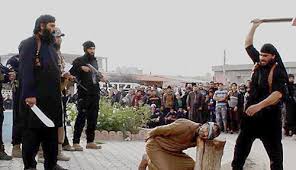Russia, US and Iran together can eliminate Daesh
Is it possible to defeat Daesh in a year? President Trump has directed the Pentagon to deliver plans to achieve that goal.
The answer may depend on how one defines “defeat.” But whether it’s a matter of months or of years, stamping out the world’s most threatening and widespread terrorist organisation is likely to take much more of a long-term US commitment than the new administration has so far suggested it wants to make, some regional experts say. It will also require more commitment from the 68 countries and international organisations of the counter-Daesh coalition meeting in Washington on Wednesday.
The coalition partners will have some significant gains to celebrate, US officials and analysts say. But the rate of future progress will largely be determined by key coalition members’ ability to sort out the disputes that have hampered the fight.
Also vital to keeping a defeated Daesh down will be the development of some kind of regional understanding with key players that are not part of the US-led coalition, namely Iran and Russia. “Daesh globally is not going to be defeated in a year, but if the goal is seeing that Daesh is no longer a territorial entity, that is certainly doable within a year,” says Daveed Gartenstein-Ross, a counterterrorism analyst at the Foundation for the Defense of Democracies in Washington.
“The question after you essentially take away any claim they have to being a ‘state,’ ” he adds, “is what (the US) will have to do and what will be needed from other players to make sure that Daesh in whatever form cannot come back.”
Daesh is already on the verge of defeat in Mosul, Iraq’s second-largest city, and the looming US-supported campaign to rout the group from its self-declared capital in Raqqa, Syria, could be wrapped up well before the end of the year, Dr Gartenstein-Ross says.
That would leave much smaller but still potent affiliates of the group scattered as far and wide as Libya and the Sahel in Africa to Afghanistan. But remaining to be dealt with will be the complex and sensitive problem of Daesh’s foreign fighters returning home – and potentially to underground cells preparing to carry out terrorist attacks – to countries such as Tunisia and Egypt as well as to Western Europe.
Still, US officials are signalling they intend to use the conference as something of a pep talk to underscore the gains the coalition has already made, and from there to rev up support for what comes next.
In the short term, the US does appear to be preparing to play a more proactive role in the upcoming battle to evict Daesh from Raqqa, as seen in the recent deployments of hundreds of Marines and additional special forces to assist in the imminent fight. But the Pentagon’s revised plan for Raqqa rules out using US forces on the front lines of the campaign, and that means the US still has to work out who will conduct the ground war.
That’s where this week’s counter-Daesh coalition conference comes in. No one expects any details of the Raqqa battle to be announced at the gathering, but analysts say important clues as to who will lead the fighting could come from the conference sidelines.
How will Turkey and Syrian Kurds figure in the Raqqa campaign? Will there be any signs of accommodation between those two key players, both of which experts say could make or break the Raqqa fight?
State Department officials note that a coalition gathering in Washington in July, in the run-up to the commencement of the Mosul battle, drummed up about $2 billion in various kinds of support. They are hoping for a similar indication of support for the Raqqa battle from this week’s conference. At the same time, however, experts continue to emphasise that it won’t be just the coalition but key non-coalition actors that will also determine the course of the counter-Daesh fight.
Yet as important as Russia may be to the counter-Daesh campaign in Syria, the long-term prospects of keeping Daesh from roaring back in some form in both Syria and Iraq will be dim without some understanding with Iran.
And reaching that point will first require, more than any coalition actions, firm signals from the US that it intends to remain in both Syria and Iraq after Daesh’s fall, says Jeffrey, now a distinguished fellow at the Washington Institute for Near East Studies.
“First of all, we’ll need to make it clear we will stay on in Syria..We will be maintaining ‘lily pads’ [of military presence] in both Syria and Iraq,” Jeffrey says. “That’s when you talk to Iran. It’s the only way this is going to work.”
The Christian Science Monitor
